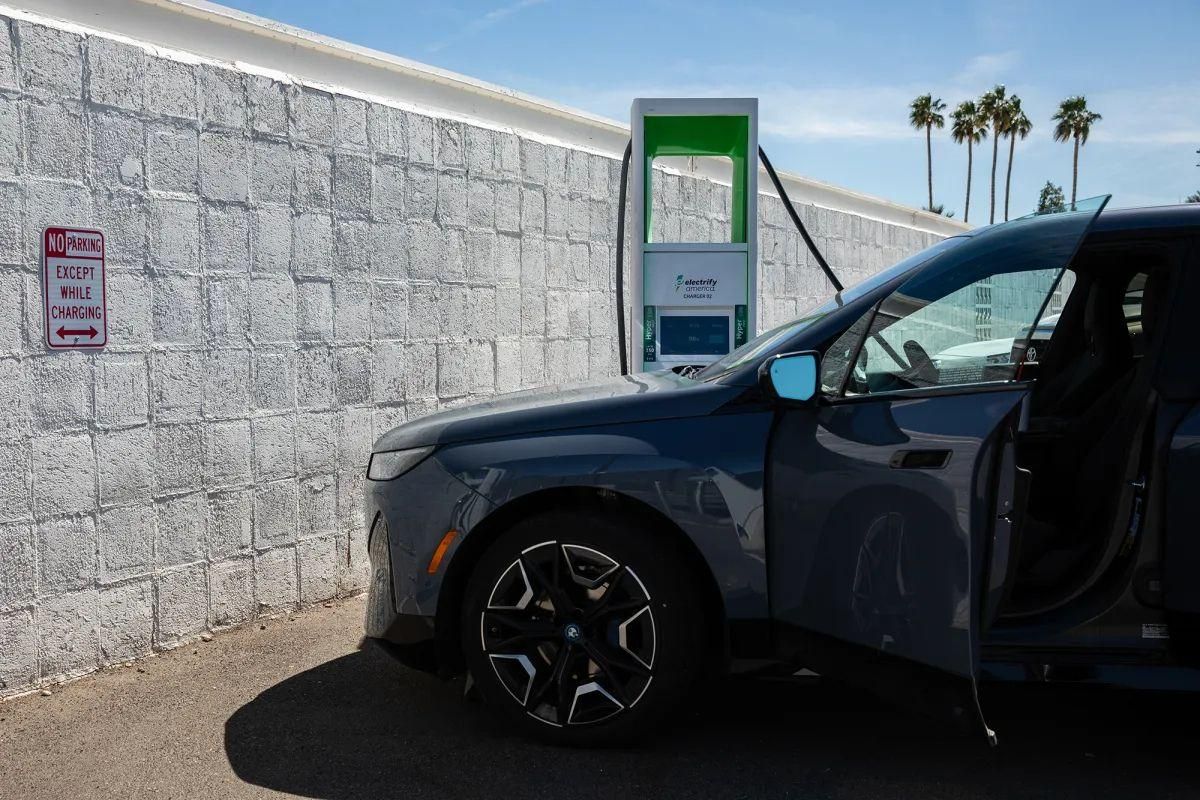President Donald Trump signed three resolutions June 12 that revoke California’s groundbreaking rule to ban the sale of new gas-powered vehicles by 2035, escalating an already tense legal and political standoff between the federal government and the state.
The Congressional Review Act resolutions, passed by Congress in May, aim to overturn California’s ambitious climate regulations, including its rules phasing out gas-powered passenger vehicles, limiting tailpipe emissions from trucks, and restricting nitrogen oxide pollution from medium- and heavy-duty diesel vehicles.
At a White House signing ceremony, Trump denounced California’s regulations as “crazy,” saying, “It’s been a disaster for this country.” He also criticized the cost of EV infrastructure and expressed skepticism about electric vehicle performance, though he added, “I like Tesla,” referencing Elon Musk’s EV company.
California officials responded swiftly. State Attorney General Rob Bonta announced the state’s lawsuit against the federal action during a news conference held before the White House ceremony concluded. “The federal government’s actions are not only unlawful; they’re irrational and wildly partisan,” Bonta said. Ten additional states, all with Democratic attorneys general, joined California in the lawsuit.
The Alliance for Automotive Innovation, which represents major automakers, supported Trump’s action. “Everyone agreed these EV sales mandates were never achievable and wildly unrealistic,” said John Bozzella, the group’s president and CEO, in a statement.
However, California Gov. Gavin Newsom strongly condemned the move, calling it an “all-out assault” on both California and national clean energy goals. “We are suing to stop this latest illegal action by a president who is a wholly-owned subsidiary of big polluters,” Newsom stated.
California has historically held authority under the Clean Air Act to set stricter vehicle emissions standards than federal guidelines through waivers granted by the Environmental Protection Agency. That authority has been a repeated point of contention between California and federal administrations. Trump revoked California’s waiver authority during his first term, but President Joe Biden reinstated it in 2022.
Congressional Republicans used the Congressional Review Act to advance the resolutions, despite a determination from the nonpartisan U.S. Government Accountability Office that California’s rules cannot be legally overturned via that process. The Senate parliamentarian upheld the GAO’s conclusion.
California’s influence extends beyond its borders, as the state represents about 11% of the U.S. car market and has led a coalition of approximately a dozen states adopting similar zero-emission vehicle mandates.
The signing comes amid broader Trump administration efforts to roll back environmental regulations. On June 11, the Environmental Protection Agency proposed repealing limits on greenhouse gas emissions from coal- and natural gas-fueled power plants.
Dan Becker, director at the Center for Biological Diversity, called the signing “Trump’s latest betrayal of democracy,” accusing the administration of “rewarding Big Oil and Big Auto corporations at the expense of everyday people’s health and their wallets.”
Trump, who has made revitalizing domestic auto manufacturing and expanding oil and gas production central to his platform, framed the action as restoring consumer choice. “If you want to buy electric, you can buy electric,” he said. “What this does is it gives us freedom.”
The legal battle over California’s authority and vehicle emissions rules is likely to continue for months, if not years, as both sides prepare for protracted court proceedings.














